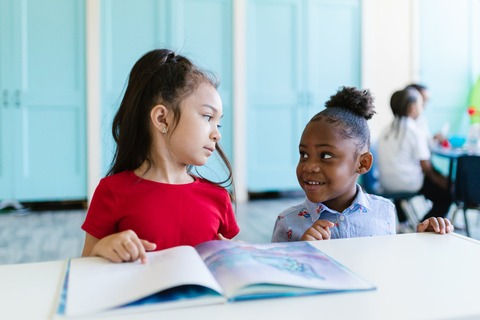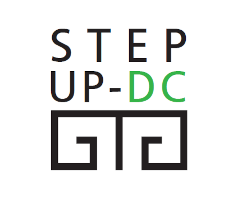Session 4, Culture, identity, diversity in education
STEPUP-DC Project

Course DescriptionBasic Topics
- Identity
- Ascribed status
- Attained status
- Culture
- Diversity
- Intercultural education
- Multicultural education
Duration
The duration of the session is 9 hours (3 reading + 3 learning + 3 working/practicing)
Objectives
The Objectives of this session are:
- To support students in developing a critical understanding of the socio-psychological process of construction of identity and of the role of formal education in this process.
- To support students in developing an understanding of the interplay and interdependence between culture and identity.
- To support students in recognising and appreciating diversity.
- To familiarise students with the principles of intercultural and multicultural education and and how these can be implemented in the classroom
Learning outcomes
After completion of the session students will:
- Understand the concepts of identity and status and influences on them, including culture.
- Recognize and appreciate the importance of different educational approaches, including interculturalism, multiculturalism and related practices, for promoting intercultural understanding and combatting prejudice and discrimination.
- Be able to reflect critically on their own understanding and positionality in relation to diversity in their society and their roles as future educators.
- Developing relevant methods for their own classrooms.
- Personal reflection essay on the themes of identity, culture and status in the students’ own life and implications for their teaching practices.
- One fully developed strategy on the completion of the workshop.
Outcomes and CDC
- Knowledge and critical understanding
- Including politics, law, human rights, cultures, religion, etc.
- 119: Can describe basic cultural practices (basic)
- 120: Can reflect critically on how her/his own world view is just one of many world views (basic)
- 126: Can explain the dangers of generalizing from individual behaviors to an entire culture (intermediate)
- 123: Can explain the universal, inalienable and indivisible nature of human rights (intermediate)
- 132: Can explain why there are no cultural groups that have fixed inherent characteristics (advanced)
- Values
- Valuing cultural diversity
- 201: Promotes the view that we should be tolerant of the different beliefs that are held by others in society (basic)
- 202: Promotes the view that one should always strive for mutual understanding and meaningful dialogue between people and groups who are perceived to be “different” from one another (basic)
- 203: Argues that one should promote communication and dialogue between people from different cultural backgrounds (basic/intermediate)
- 204: Expresses the view that the cultural diversity within a society should be positively valued and appreciated (intermediate)
- 205: Argues that one should try to learn from one another in order to deepen understanding of both one’s own and other people’s backgrounds (intermediate/advanced)
- 206: Argues that intercultural dialogue should be used to help us recognise our different identities and cultural affiliations (advanced)
- 207: Argues that intercultural dialogue should be used to develop respect and a culture of “living together” (advanced)
- Attitudes
- Open to Cultural Otherness
- 401: Shows interest in learning about people’s beliefs, values, traditions and world views (basic)
- 404: Expresses curiosity about other beliefs and interpretations and other cultural orientations and affiliations (intermediate)
- 406: Expresses interest in working with people from different cultural backgrounds (intermediate/advanced)
- 409: Seeks and welcomes opportunities for encountering people with different values, customs and behaviours (advanced)
- Skills
- Autonomous Learning Skills
- 1006: Can identify relevant sources of information to Accomplish a learning task (basic/intermediate)
- 1014: Can assess the quality of his/her own work. (intermediate)
- Empathy
- 1302: Expresses sympathy for the bad things that he/she has seen happen to other people (basic)
- 1303: Expresses compassion for people who are being treated unfairly (intermediate)
- 1320: Expresses sympathy for people who are less fortunate than himself/herself (intermediate)
- 1325: Expresses the view that, when he/she thinks about people in other countries, he/she shares their joys and sorrows (advanced)
- Identity
- Ascribed status
- Attained status
- Culture
- Diversity
- Intercultural education
- Multicultural education
The duration of the session is 9 hours (3 reading + 3 learning + 3 working/practicing)
The Objectives of this session are:
- To support students in developing a critical understanding of the socio-psychological process of construction of identity and of the role of formal education in this process.
- To support students in developing an understanding of the interplay and interdependence between culture and identity.
- To support students in recognising and appreciating diversity.
- To familiarise students with the principles of intercultural and multicultural education and and how these can be implemented in the classroom
After completion of the session students will:
- Understand the concepts of identity and status and influences on them, including culture.
- Recognize and appreciate the importance of different educational approaches, including interculturalism, multiculturalism and related practices, for promoting intercultural understanding and combatting prejudice and discrimination.
- Be able to reflect critically on their own understanding and positionality in relation to diversity in their society and their roles as future educators.
- Developing relevant methods for their own classrooms.
- Personal reflection essay on the themes of identity, culture and status in the students’ own life and implications for their teaching practices.
- One fully developed strategy on the completion of the workshop.
- Knowledge and critical understanding
- Including politics, law, human rights, cultures, religion, etc.
- 119: Can describe basic cultural practices (basic)
- 120: Can reflect critically on how her/his own world view is just one of many world views (basic)
- 126: Can explain the dangers of generalizing from individual behaviors to an entire culture (intermediate)
- 123: Can explain the universal, inalienable and indivisible nature of human rights (intermediate)
- 132: Can explain why there are no cultural groups that have fixed inherent characteristics (advanced)
- Including politics, law, human rights, cultures, religion, etc.
- Values
- Valuing cultural diversity
- 201: Promotes the view that we should be tolerant of the different beliefs that are held by others in society (basic)
- 202: Promotes the view that one should always strive for mutual understanding and meaningful dialogue between people and groups who are perceived to be “different” from one another (basic)
- 203: Argues that one should promote communication and dialogue between people from different cultural backgrounds (basic/intermediate)
- 204: Expresses the view that the cultural diversity within a society should be positively valued and appreciated (intermediate)
- 205: Argues that one should try to learn from one another in order to deepen understanding of both one’s own and other people’s backgrounds (intermediate/advanced)
- 206: Argues that intercultural dialogue should be used to help us recognise our different identities and cultural affiliations (advanced)
- 207: Argues that intercultural dialogue should be used to develop respect and a culture of “living together” (advanced)
- Valuing cultural diversity
- Attitudes
- Open to Cultural Otherness
- 401: Shows interest in learning about people’s beliefs, values, traditions and world views (basic)
- 404: Expresses curiosity about other beliefs and interpretations and other cultural orientations and affiliations (intermediate)
- 406: Expresses interest in working with people from different cultural backgrounds (intermediate/advanced)
- 409: Seeks and welcomes opportunities for encountering people with different values, customs and behaviours (advanced)
- Open to Cultural Otherness
- Skills
- Autonomous Learning Skills
- 1006: Can identify relevant sources of information to Accomplish a learning task (basic/intermediate)
- 1014: Can assess the quality of his/her own work. (intermediate)
- Empathy
- 1302: Expresses sympathy for the bad things that he/she has seen happen to other people (basic)
- 1303: Expresses compassion for people who are being treated unfairly (intermediate)
- 1320: Expresses sympathy for people who are less fortunate than himself/herself (intermediate)
- 1325: Expresses the view that, when he/she thinks about people in other countries, he/she shares their joys and sorrows (advanced)
- Autonomous Learning Skills
A series of resources that the student teacher must study in this session and a series of additional resources for further study.
A full paper and additional e-lessons on the topics of the session and additional interactive presentation of the materials, for the student teachers to study all the materials in a row.
A series of authentic, up to date and relevant activities with their accompanying materials, which deliver the intended learning outcomes of the session and are carried out face to face or E-learning with groups of student teachers.
Several types of questions to evaluate how much the student teachers have learned throughout the session (reading material, learning material and workshop).
